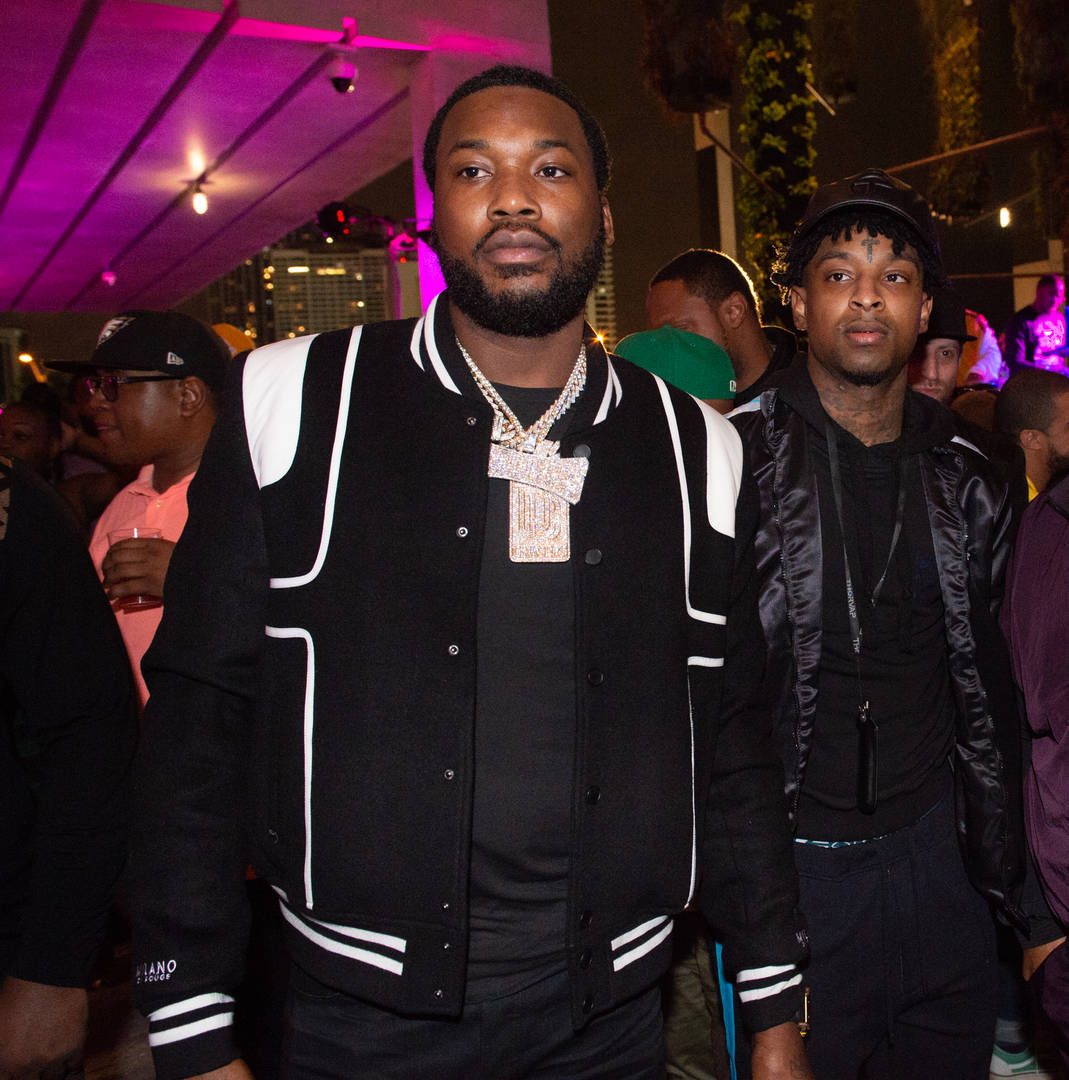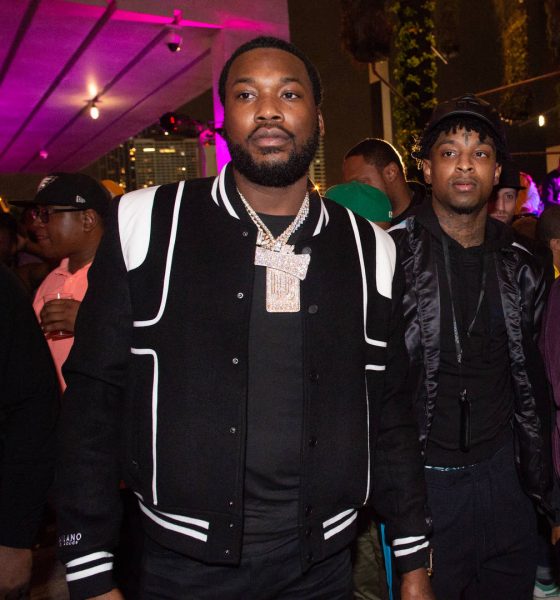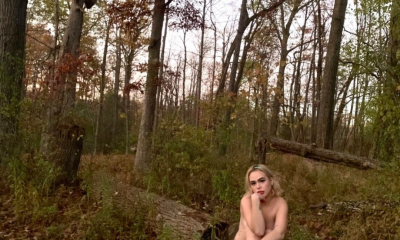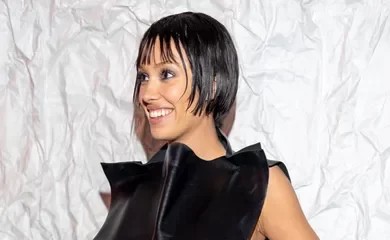

Story
What Is Clubhouse? Everything To Know About The New & Exclusive Social Media App
What is Clubhouse?
Founded in March 2020 by Paul Davison and Rohan Seth, Clubhouse is a new, invite-only (for now) audio social app in which users join chat rooms and are able to hear other users conversing, and join the discussion themselves. As of right now, the app is still in beta testing and only has a few thousand users, most of whom are either public figures or have some connection to Silicon Valley. The app is slowly expanding its user base by inducting roughly a dozen new users each day, thus still maintaining its exclusivity as it assesses how well the company can execute its intended purpose to foster communication and human connection among a steadily-growing audience. In the meantime, they’ve also begun a waiting list where you can register your username ahead of time.
The new-fangled app was valued at $100 million back in May, despite the fact that it only had a mere 1,500 total users at the time (today’s figure hovers a little over 10,000 users), with investments coming from American venture capital firm, Andreessen Horowitz. As the next stages of the app’s testing process unfold, it will be made clearer whether the buzz surrounding the app is solely the result of its exclusivity, or if Clubhouse would still be met with the same excitement were it to be made more accessible to the public. In the few months since its iteration, Clubhouse has already garnered shout-outs from a number of high-profile figures in the black and hip-hop communities, with users Kevin Hart, producer Cardo Got Wings, and TIDAL’s chief content officer, Elliott Wilson, all showing love to the platform.
Clubhouse’s Exclusivity
The scarcity of a product is often used to ensure success in today’s hype-oriented streetwear and cultural landscape, however, for this tactic to be employed by a social media app is a relatively novel concept. Generally speaking, the ideology social media startup founders have by-and-large operated by is that more reach equals more success, but Clubhouse is proving that rarity can be just as valuable a tool as accessibility in ensuring prosperity.
Even so, the app’s founders have stated that this exclusive nature of the app isn’t their intention: “We are building Clubhouse for everyone and working to make it available to the world as quickly as possible. It’s not intended to be exclusive; we just aren’t ready to ship the general release version yet.” The reasoning? “We think it’s important to grow communities slowly, rather than 10x-ing the user base overnight. This helps ensure that things don’t break, keeps the composition of the community diverse, and allows us to tune the product as it grows,” as well as the fact that they have limited employees and thus haven’t finished building out the features of the app quite yet.
Clubhouse’s unique approach may distinguish the app from other reigning social media platforms, however, it has not been exempt from controversy as the app tries to find its footing in the tech world. Continue reading for a look at the controversy the company was recently enmeshed in, as well as a who’s who of celebrities and hip-hop figures who we know are enjoying access to the platform presently.
September Anti-Semetic Remarks
The challenge with founding a platform on the basis of promoting candid discussions amongst people of different walks of life is that free speech and hate speech are often inextricably linked. While things may have been smooth-sailing for Clubhouse for a few months, it was only a matter of time before impending controversy hit. When it did hit, it was in the form of a series of anti-Semitic remarks that had erupted in a chat room titled “Anti-Semitism and Black Culture,” moderated by activist Ashoka Finley on Yom Kippur in September.
The chat room drew 350 simultaneous users, while hundreds of others poured in and out throughout its duration, making it one of the app’s most popular chat rooms to date. While the conversation apparently started out constructive, it quickly became derailed, with people unabashedly expressing offensive tropes against Jewish people, stereotyping them as wealthy and stingy, with the discussion centering around certain users’ belief that black people deserve reparations, while the Jewish community does not, due to the perceived economic success of many Jewish people in America.
When Jewish participants attempted to interject, they were trampled over by others and went largely unheard. The discussion room was criticized for essentially pitting two minority communities against each other. Given the title of the discussion, some felt the result was unsurprising. The fact that it was held on Yom Kippur, one of the holiest days of the year for Jewish people, only stoked the controversy further.
The struggle for moderation will be one of Clubhouse’s defining obstacles, as has been the case for other apps built on the same philosophy of encouraging connection, such as Yik Yak, which rose in popularity for the unfiltered, forthright dialogue it offered users and fell from grace for the very same reason. Yik Yak offered users anonymity that Clubhouse does not, but that has not stopped some Clubhouse users from entering false names, ranging from Elon Musk to Tim Cook, in order to attract others to their chat rooms, prompting users to call on the platform to enforce a real name policy.
These incidents show that it does not take much for Clubhouse’s well-intended goal of bringing people together at a time in which most are practicing social distancing, to spiral out of control. It is evident that as the platform continues to accept new users, offensive discourse will only become more prevalent, meaning that implementing strong community guidelines and zero-tolerance policies for hate speech will be paramount in order for Clubhouse to maintain its credibility.
Clubhouse’s Celebrity Users

Romain Maurice/Getty Images
The black community’s influence in dictating trends has been made clear beyond doubt in recent years. Aside from the fact that at least half of all internet slang, fashion trends, and dance crazes are derived from black creators or personalities, black consumers wield significant buying power and thus, brands often need to cater to them in order to survive. Clubhouse seems to have caught onto this particular indicator of success early on, with them notably extending the app’s exclusive membership to many influential members of the black community, such as E-40, Chris Rock, Kevin Hart, Terry Crews, MC Hammer, 21 Savage, Oprah Winfrey, and Joe Budden. Other famous names include Hannibal Buress, Ashton Kutcher, Mark Cuban, Jared Leto, and reportedly even Twitter CEO Jack Dorsey.
Clubhouse’s celebrity roster has begun turning some heads, with people noting that the company seems to be strategically cherry-picking certain black public figures to promote the app among the black community. Companies headed by non-black folks going out of their way to hook black people onto their ideas is becoming an increasingly common phenomenon, and many black people staunchly believe that their communities should refrain from indulging these corporations, who they perceive as strictly self-serving.
One person tweeted, “So there’s a new white space app called clubhouse that requires an invite to join; and Black folk who have been historically denied access are supposedly clamoring to get on and espouse its exclusivity to others who weren’t invited? Sounds like some “onlyoneism” ish to me.”
Regardless of whether or not this strategy has been carved out by Clubhouse as meticulously as it would appear, it is clearly paying off. Multiple Clubhouse users have expressed on social media that Meek Mill and 21 Savage have emerged as two of the app’s most entertaining users, and are even something of a dynamic duo when they happen to be on the app at the same time. Meek Mill has even expressed interest in investing in the company, taking to Twitter to ask how he could go about doing so.
As far as the conversations go on the app, well, apparently E-40 gave his thoughts on the future of rap, while MC Hammer spoke about COVID-19’s effect on the prisons.
The #ClubhouseChallenge Trend Explained
On October 27th, the #ClubhouseChallenge trend emerged on Twitter, in which people utilize Twitter’s new voice recording feature to record themselves speaking to a presumed audience, as though in a Clubhouse chat room. In their recordings, users rattle off nonsensical statements one after the other, poking fun at the manner in which people discuss issues on Clubhouse, trying so hard not to offend anyone that they actually end up saying a whole lot of nothing. Other #ClubhouseChallenge videos simply mock the outlandish statements that are sometimes said on the platform; listen to some examples below.
Are you vying for a spot on the up-and-coming platform’s member list? Let us know if you’re familiar with the app yet in the comments.
Stay updated! Click the Google News follow button for more news and updates.
Follow on Google NewsFeatured
Eddie Castillo’s Powerful Ocean Conservation Video Campaign

“We are the last generation that can save the oceans, and we are the first generation that must learn to live without them.” – Silvia Earle

By Altered State Productions
The Ocean Foundation has taken on a mission of critical importance: to save our dying oceans from the irreversible damage caused by human activity. With marine ecosystems teetering on the brink of collapse, the organization’s latest campaign aims to educate and inspire action through the power of storytelling.
Meet Eddie Castillo, Founder of Dallas production company Altered State Productions and media director who’s passionate about the ocean’s survival. His latest project with an ocean conservation organization takes viewers on an emotional journey, blending breathtaking aerial footage with a powerful stewardship message.
“It’s easy to become numb to the devastation happening around us”, says Castillo, “We scroll past images of environmental destruction, momentarily horrified, yet quickly moving on to the next distraction.” While other campaigns often depict the devastation—plastic, trash, turtles entangled in debris—the Last Generation campaign strives to remind us of the beauty we are at risk of losing forever. The brand video captures the ocean’s waves hitting the shore, smooth and therapeutic.

Castillo’s work, reminiscent of National Geographic’s Planet Possible, combines awe-inspiring visuals with a profound sense of responsibility for our planet. Using advanced drone technology, Castillo captured mesmerizing scenes of Hawaii’s North Shore, showcasing the pristine beauty of marine ecosystems under threat. These stunning visuals, paired with philosophical narrations by Alan Watts and a cascade of electronic synths, create a dreamlike quality that blurs the lines between reality and fantasy.
The Ocean Foundation’s storytelling hinges on compelling imagery, reminding us of our collective responsibility to protect these fragile ecosystems. By raising awareness and inspiring change through the power of commercial video production, the project serves as a rallying cry for ocean literacy, species protection, and habitat preservation.
Altered State Productions proudly circulates its media campaign through syndicated sources, utilizing targeted messaging that hits viewers on a different level. “As a media production company, our mission is to create impactful messages that drive real change,” says Brian Medina, Communications Director at Altered State Productions. “We pour our hearts into every project, hoping to make a difference. We’ve successfully generated over a quarter billion dollars in attribution for brands and companies worldwide. If we can do that for profit, imagine what we can achieve for causes worth standing for.”
The media agency’s impressive portfolio includes over 96 nationally aired TV ad campaigns for brands like Jameson, Valyou, and OWN.

In one scene, two young children hold up a surfboard to protect themselves from an incoming wave, playing innocently as kids do. The scene cuts to a breathtaking timelapse of an iridescent coral reef, with aqua blue currents turning the rock. This moment signals that those two kids could be the last to witness such beauty, delivering the hard-hitting message of what we stand to lose—an ocean and all its wonder, and the chance to truly experience it.
In the end, we are faced with the undeniable truth that if we do not act, our children and their children may never know the oceans’ true splendor, leaving behind only a memory of what once was—a heartbreaking legacy of neglect, making the next generation, possibly the last generation.
Altered State Productions is a video production company and digital marketing agency, specializing in video editing services that propel brands with competitive advertising.
Business
How to Get Your Music on Spotify’s Algorithmic Playlists

Hey there, music maker! Let’s chat about:
* The cool types of algorithmic playlists out there
* How Spotify’s playlist magic works
* Some nifty tricks to get your tunes on these playlists
* Ways to boost your chances of playlist success
* Some final thoughts to keep you inspired
Spotify’s Algorithmic Playlists: Your New Best Friend
Wondering how to get your music featured on Spotify’s playlists? No need to stress we’ve got you covered! Here’s the lowdown;
Option 1; Create a hit song that gains 5,000 to 10,000 streams, within the two weeks of its release. Sounds challenging? Keep reading!
Option 2; Consider using our Spotify advertising campaign to boost your streams and potentially catch the attention of those playlists.
Option 3: Use Spotify ad campaign to trigger the algorithm

Let’s dig in shall we?
Promoting your music on Spotify is like amplifying your voice in a room. Those algorithmic playlists? They’re like winning lottery tickets for artists helping them connect with listeners and even securing a spot, on Spotifys curated playlists. Stuff, right?
Think of these playlists as your music’s personal matchmaker. They introduce your tunes to listeners who might never have found you otherwise. It’s like having a friend who’s always saying, “Hey, you’ve got to hear this!”
Landing on a popular algorithmic playlist can give your Spotify profile a serious boost. And if you’re lucky enough to hit a trending playlist? Well, that’s when things can really take off!
What kinds of algorithmic playlists are out there?
Spotify’s algorithm is like a DJ that knows exactly what each listener wants to hear. Here are some of its greatest hits:
Discover Weekly:
Your personal Monday mixtape, filled with new tunes and old favorites.
Daily Mix:
A fresh playlist every day, blending your faves with similar tracks.
Release Radar:
Friday’s new music party, featuring your top artists and similar sounds.
Your Library:
A mix of your likes, saves, and new releases from your favorite artists.
On Repeat:
The songs you can’t stop playing, plus some new recommendations.
Repeat Rewind:
A blast from the past, featuring your old favorites and similar tracks.
Time Capsule;
Take a trip down memory lane personalized for you.
Spotify Radio;
Craft your playlist inspired by any song, artist or music genre.

Ever wondered how Spotify creates its playlists?
Think of Spotifys algorithm, as a music enthusiast robot with a memory. It observes listener preferences examines song details, adapts, to your listening patterns and notes how people engage with songs.Pretty smart, right?
So, how do you get your song on these playlists?
You’ve got two main routes:
Option 1: Create an amazing song that gets lots of love quickly. Aim for 5,000-10,000 streams in the first couple of weeks. Remember, Spotify also looks at things like user engagement and how well your song fits different playlists.
Option 2: Give our Spotify ad campaign a try. It’s designed to boost your streams and often triggers those algorithmic playlists. Plus, the benefits often continue even after the campaign ends!
Option 3: Use a Spotify ad campaign to trigger Spotify’s algorithmic playlists.
Here are some tips to boost your chances:
- Use Spotify for Artists: It’s like your backstage pass. Fill out all the info you can when submitting your music.
- Creating music is essential. It’s a no brainer!
- Share your music; Put your songs on playlists made by users reach out to curators and promote your tracks on media platforms.
- Create your own playlists: Mix your songs with similar artists and try to gain followers.
- Keep at it: Rome wasn’t built in a day, and neither are music careers. Stay patient and persistent!
What’s next after you hit those algorithmic playlists?
Set your sights on Spotify’s editorial playlists. They’re like the Mount Everest of playlist goals and can really launch your career into the stratosphere!
Final Thoughts:
Music promotion can expose your tracks to new listeners and new potential fans. Spotify is a crucial platform to get exposed. Remember, the key to triggering these playlists is getting those streams quickly – aim for at least 5,000 in two weeks. And the more tracks you create and release, the better your chances to hit the algorithmic playlists.
You’ve got this, superstar! Now go make some noise!
-

 Artist Spotlight23 hours ago
Artist Spotlight23 hours ago“Foreign” by OKARO unleashed a symphonic declaration of independence
-

 Music5 hours ago
Music5 hours agoKyra India’s “Ohio”, An Anthem for the Brokenhearted, Rooted in Raw Emotion
-

 Music4 hours ago
Music4 hours agoDUPLEXITY’s ‘Devil In Blue’. A Sonic Sizzle With a Sinister Twist
-

 Artist Spotlight11 hours ago
Artist Spotlight11 hours agoPlasma Chasms sparks a cosmic love affair with “Interstellar Baby”
-

 Music5 hours ago
Music5 hours agoDad’s “Snake Handshake” Slithers Through Industrial Grit with Raw Aggression
-

 Music5 hours ago
Music5 hours agoPlayboy Fresh’s New Single, “IDWIFL,” is a High-Flying Anthem of Lavish Living
-

 Music4 hours ago
Music4 hours agoJody Lynn Sprints to the Heart in Electrifying New Single ‘Running’
-

 News2 hours ago
News2 hours agoBianca Censori Defies Hotel Dress Code in Scandalous Style with Kanye West

